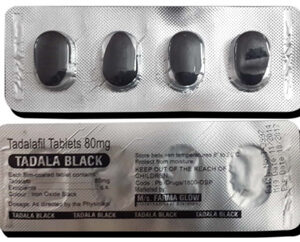Overview
Viagra, known scientifically as sildenafil, is primarily used for treating erectile dysfunction and pulmonary arterial hypertension. It falls under the category of PDE5 inhibitors, enhancing blood flow to specific body areas. Available as an oral tablet, Viagra is taken about 30 minutes to 1 hour before sexual activity. Note that it doesn’t provide protection against STDs or act as contraception.
Mechanism of Action
Viagra works by relaxing muscles in the blood vessel walls, which increases blood flow to the penis, essential for achieving an erection. The effectiveness of Viagra is seen when it is taken in conjunction with sexual stimulation.
Viagra (Sildenafil) Usage and Safety Information
Indications:
- Viagra is indicated for erectile dysfunction (ED) treatment.
Consultation and Prescription:
- Due to its specific application and potential side effects, a prescription and consultation with a healthcare provider are necessary before starting Viagra.
Dosage Guidelines:
| Aspect | Details |
|---|---|
| Recommended Starting Dose | 50 mg, as needed, 1 hour before sexual activity |
| Timing Flexibility | Can be taken 30 minutes to 4 hours before sexual activity |
| Dose Adjustment | 25 mg to 100 mg based on effectiveness and toleration |
| Maximum Frequency | Once per day |
Available Strengths:
- Tablets: 25 mg, 50 mg, 100 mg
Contraindications:
- Use with nitrates, nitric oxide donors, or organic nitrites.
- Known hypersensitivity to sildenafil.
- Administration with guanylate cyclase stimulators like riociguat.
Warnings and Precautions:
- Avoid if sexual activity is risky due to cardiovascular status.
- Seek emergency care for erections lasting over 4 hours.
- Stop use and seek medical help for sudden vision loss or hearing decrease.
- Caution with alpha-blockers or anti-hypertensives; may cause hypotension.
- Adjust dosage for patients on strong CYP inhibitors like ritonavir.
Side Effects
Common Side Effects:
- Bladder pain, chest or stomach burning
- Numbness, tingling sensations
- Cloudy or bloody urine, dizziness
- Indigestion, urination pain, stomach upset
Rare Side Effects:
- Vision changes, anxiety
- Eye bleeding, blurred vision
- Bone pain, chest
Managing Mild Side Effects of Viagra
Some side effects of sildenafil, the active ingredient in Viagra, are usually mild and may not require medical attention. These often resolve as your body gets accustomed to the medication. Health care professionals can provide advice on managing or minimizing these effects.
If you experience persistent or bothersome side effects, or if you have questions, consult your health care provider for guidance.
Drug Interactions:
- Inform your doctor about all current medications.
- Avoid use with nitrates, riociguat, certain antifungals, antibiotics, alpha-blockers, or blood pressure medications.
Take the Next Step: Consult your healthcare provider for personalized advice and adhere to prescribed guidelines. Stay informed and proactive in managing your health with Viagra.






Reviews
There are no reviews yet.